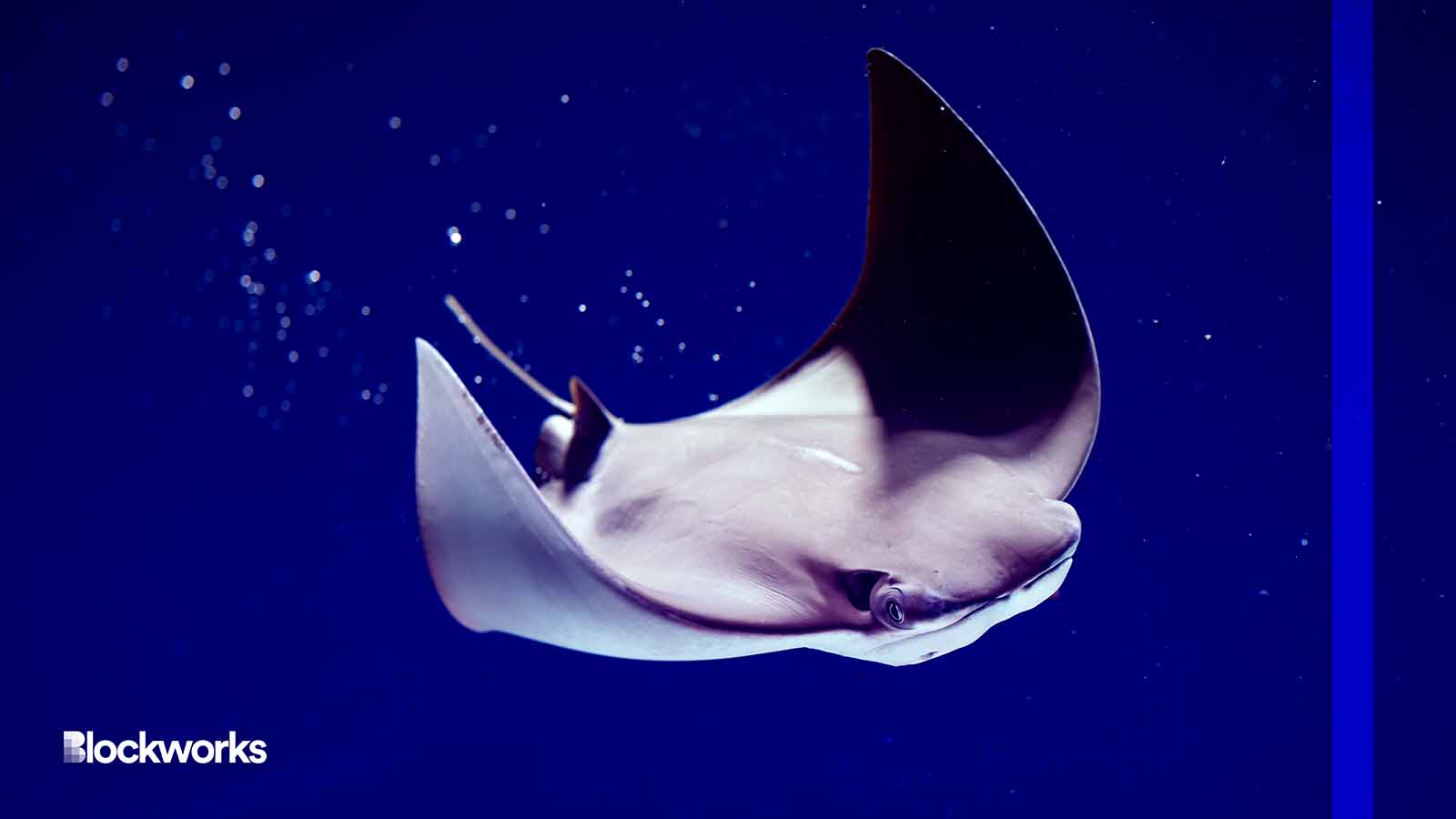Manta Network deploys L2 Manta Pacific to scale zk adoption
Manta Pacific is built using OP stack and will rely on Celestia for data availability

JENG BO YUAN/Shutterstock modified by Blockworks
Manta Network, a multi-modular ecosystem for zero-knowledge (zk) applications, has deployed its native layer-2 ecosystem, dubbed Manta Pacific.
Manta Pacific is built using Optimism’s OP stack and relies on Celestia for data availability (DA). Unlike other rollup solutions, it is designed for zk applications using what the company calls “Universal Circuits.”
Zero-knowledge applications prioritize privacy. They are designed to prove the accuracy of information without revealing the details of the information itself.
Universal Circuits were designed by Manta to offer Solidity developers the ability to easily enable zk features with a limited amount of code, Kenny Li, co-founder of Manta, told Blockworks.
“Much like Solidity developers don’t have to worry about infrastructure, they should not have to worry about the cryptographic guarantees offered by zk to deliver value to their users,” Li said. “With Universal Circuits, we abstract away all of the complexity of cryptography away from the developer, and they can enable zk services with just an SDK.”
This means developers can create private payment solutions for DeFi platforms and verify user identity for on-chain social apps.
By separating the DA layer from the execution and settlement layers, the network can significantly reduce gas costs of on-chain transactions, Li explained.
“This benefit is passed down to the user in the form of much lower gas fees than other existing layer-2s,” Li said.
Since launching its testnet last month, the rollup solution has seen more than 200,000 wallets created and processed over 3 million transactions.
“We already have our first Universal Circuit, zkShuffle, deployed in its alpha stage,” Li said. “zkShuffle allows developers to build imperfect information games on-chain, specifically around shuffling and dealing cards.”
ZkShuffle functionality extends to many variants of imperfect-information-based on-chain games, Li said. An example of this is zkHoldem, a gaming project that uses the tech for on-chain Texas hold ‘em.
The team will expand its services, with a specific focus on Asia. Li told Blockworks that approach is being taken because trading and gaming are major industries in the region.
“We are seeing a very fast growth in interest from Asia, but at the same time the overall community enthusiasm from a market perspective has been strong as members all around the world anticipate the launch of our mainnet,” he said.
Get the news in your inbox. Explore Blockworks newsletters:
- The Breakdown: Decoding crypto and the markets. Daily.
- 0xResearch: Alpha in your inbox. Think like an analyst.






